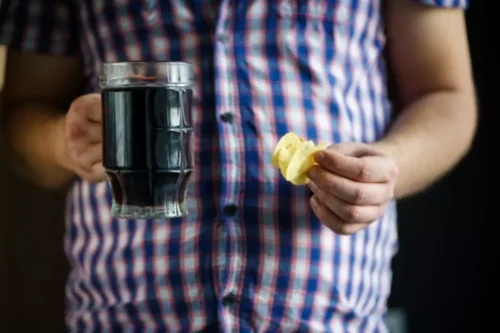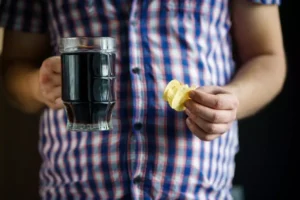Advancing reduction of drug use as an endpoint in addiction treatment trials National Institute on Drug Abuse NIDA

Psychosis is a symptom of a serious medical condition called schizophrenia. Schizophrenia also affects the way you understand what’s real, but it includes other symptoms, such as trouble with speech and not being able to focus and show emotions. Also, schizophrenia, unlike psychosis, is a long-term condition. Even so, more research needs to be done, especially on marijuana’s long-term effects.

Is cannabis addictive?
Cannabis use and heart attack incidence was assessed in a similar manner across the different studies. However, due to inconsistencies in the data available from each study, researchers were unable to account for several potential confounding factors including the duration and amount of cannabis use or the use of tobacco or other drugs. If you or someone you know struggles with addiction, consider consulting a healthcare professional about integrating cannabis into a harm reduction plan.
- Marijuana has withdrawal symptoms, although they are generally less severe than those of heroin or alcohol, but you can still benefit from a medical detox.
- Research is mixed as to whether mental health issues are more often the cause of cannabis abuse, or whether dependence on cannabis can, in turn, lead to mental health issues.
- The new tool can be used as an acceptable primary endpoint in studies of medications to treat adults with moderate to severe AUD.
- Some researchers believe that because today’s marijuana is much more potent, it makes it more likely that some people will develop physiological dependence.
- People who use marijuana chronically and quit can experience withdrawal symptoms – which are primarily due to THC and a classic symptom of drug addiction and substance use disorders.
- There’s also been, interestingly and notably for many of the people listening, an uptick in cannabis-related ER visits in adolescents and young adults since the beginning of the COVID-19 pandemic.
More on Substance Abuse and Addiction
- The increased potency of modern marijuana strains means that there is a greater risk for tolerance, dependence, addiction, and withdrawal.
- Mental health issues, like an anxiety or a mood disorder, can raise your chances, too.
- While there’s been debate over whether the use of marijuana can cause physical addiction or physical dependence, it’s been known to be psychologically addictive.
- Fortunately, there are many types of treatment for cannabis use disorder.
- Research suggests there are currently no effective medications in the treatment of cannabis use disorder.
This is an increase of 1,300% of, pediatric cannabis edible ingestion. And so, these are those things again, like the candies and the chocolates and so on. So, it’s really important for people to think about how they’re storing things.
A new roadmap for cannabis and cannabis policy research

Over time, users may graduate from smoking marijuana to using it in high-dosage edible forms or propane-extracted concentrates called dabs. This classification is something that really grates people who support legalization of marijuana. On the other hand, there are studies that have issued warnings on marijuana and heart health as well as using marijuana for morning sickness. A 2017 study reported that adult cancer patients are using marijuana to ease nausea and other symptoms.

These signs collectively point toward a dependence on marijuana that can disrupt personal, professional, and social lives. However, regular and prolonged exposure to cannabis adjusts the brain to these higher dopamine levels, making it less responsive to THC and even the body’s own endocannabinoids. There are serious ripple effects of CUD, majorly physical, emotional, and social consequences posed to those affected. At its core, CUD is a condition where someone is unable to regulate their cannabis use despite the negative impacts it may have on their physical, emotional, and social well-being. Marijuana is a mind-altering substance derived from the flower of the Cannabis sativa plant.
Despite mounting evidence, cannabis continues to face stigma due to outdated policies and misinformation. Critics often cite Cannabis Use Disorder (CUD) as proof of its addictive nature. However, CUD is mild in most cases and does not cause the life-altering consequences seen in true substance addictions. Navigating the journey away from cannabis addiction, dependency, or CUD can be daunting, yet seeking support transforms the experience.
- The most notable compound in the cannabis plant is delta-9-tetrahydrocannabinol or THC.
- If your doctor is aware of your use, they’ll be able to take the steps to make sure you stay sedated, or “asleep,” for the entire surgery.
- If you used it recently, your doctor might reschedule your surgery if it’s elective (optional) and not an emergency.
- There is little scientific evidence to support the stereotype that people who return to use after a period of abstinence inevitably do so at the same intensity.
Taken individually, seven of the studies found a significant positive association between cannabis use and heart attack incidence, while four showed no significant difference and one showed a slightly negative association. By helping individuals manage these conditions without the need for prescription medications or harmful substances, cannabis contributes to a healthier lifestyle. Many former addicts have shared their personal stories of how cannabis helped them regain control over their lives, providing a natural, therapeutic alternative to destructive habits. While there’s been debate over whether the use of marijuana can cause physical addiction or physical dependence, it’s been known to be psychologically addictive.
How Do You Know If You Are Addicted to Marijuana?

Is their goal to only, say, use on the weekends or use socially instead of using at home, every day, by themselves all day long? That’s a perfectly fine goal because it will result in there being some Alcohol Use Disorder reduction in use. The chronic relapsing nature of addiction seems to involve underlying neurophysiological changes in reward, stress, and executive function circuits (Koob and Volkow 2016). Here we summarize findings about the effects of chronic cannabis use on these circuits. Get you or your loved one help for addiction or mental health issues today.
Treatment Options
Her work with these organizations exemplifies her exceptional expertise and unwavering commitment to providing accurate and reliable information to those seeking assistance. Doctors will not typically prescribe anything to relieve cannabis intoxication. They may encourage completely stopping cannabis use if someone has CUD. According to the Diagnostic and Statistical Manual of Mental Disorders, 5th edition, text revision (DSM-5-TR), CUD involves problematic use of cannabis that leads to clinically significant distress or impairment.

If you’re impatiently waiting for your brain to bounce back, he recommends exercise to boost neuroplasticity and balance your endocannabinoid system, as well as omega-3 fatty acids found in fish and flaxseed for further cognitive health. He also suggests “engaging in mentally stimulating activities,” which help “strengthen neural pathways and restore executive function,” like reading, writing and problem-solving. That said, there are reasons to believe that cannabis works differently than other habit-forming substances. Emerging research suggests that unlike alcohol, nicotine and opioids, cannabis does not follow a linear relationship between dosage and addiction. “Cannabis addiction is far more dependent on patterns of use and psychological factors is weed addictive than sheer quantity alone,” Caplan says.

Leave a Reply